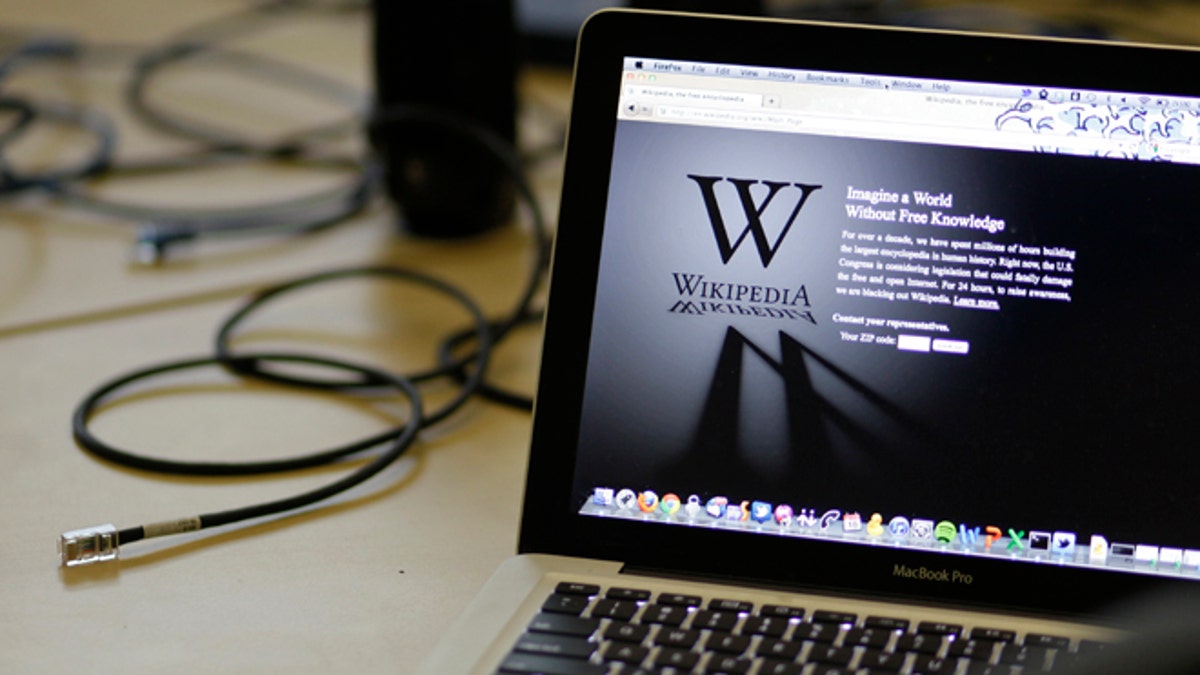
Jan. 18, 2012: A blackout landing page is displayed on a laptop computer screen to protest the SOPA legislation -- which some argue is returning under a new name. (AP Photo/Eric Risberg)
Legislators will vote this week on a controversial new cybersecurity bill that would allow the government and corporations to easily exchange private information, despite Internet protesters who see the proposal as a threat to online privacy and civil rights.
The bill, known as the Cyber Intelligence Sharing and Protection Act (CISPA), encourages information sharing between government and companies to protect against cyberattacks and for the purposes of homeland security. Unlike the much maligned SOPA and PIPA bills that were shot down in January, CISPA has the support of numerous industry heavyweights, including Facebook, Microsoft and Intel.
Still, privacy advocates believe it is far too vague -- with room for Big Brother-type abuses.
[pullquote]
“CISPA is likely to lead to expansion of the government’s role in the monitoring of private communications,” warned the Center for Democracy and Technology, and “is likely to shift control of government cybersecurity efforts from civilian agencies to the military.”
The Electronic Freedom Foundation and Reporters Without Borders agree, the later noting that this bill sacrifices freedom of expression and the protection of online privacy “in the interests of national security or copyright.”
“[It] is threatening the rights of people in America, and effectively rights everywhere, because what happens in America tends to affect people all over the world,” Tim Berners-Lee, the founder of the Internet, told the Guardian. “Even though the SOPA and PIPA acts were stopped by huge public outcry, it’s staggering how quickly the U.S. government has come back with a new, different, threat to the rights of its citizens,”
CISPA is sponsored by Rep. Mike Rogers, R-Mich., and Rep. C.A. Ruppersberger, D-Md. They claim it’s meant to prohibit Washington from forcing private companies to hand over information and to help American businesses protect their computer networks and intellectual property from cyber attacks. And many of those businesses agree.
“HR 3523 would impose no new obligations on us to share data with anyone,” wrote Joel Kaplan, vice president-U.S. Public Policy for Facebook. “And it ensures that if we do share data about specific cyber threats, we are able to continue to safeguard our users’ private information, just as we do today.”
But the Electronic Freedom Foundation begs to differ.
“Kaplan assured users that Facebook has 'no intention' of sharing private user data with the government,” wrote Rainey Reitman, activism director with the not-for-profit watchdog group.
“But let’s be clear: Internet users don’t want promises from companies … we want strong laws that make such egregious privacy violations illegal.”




















